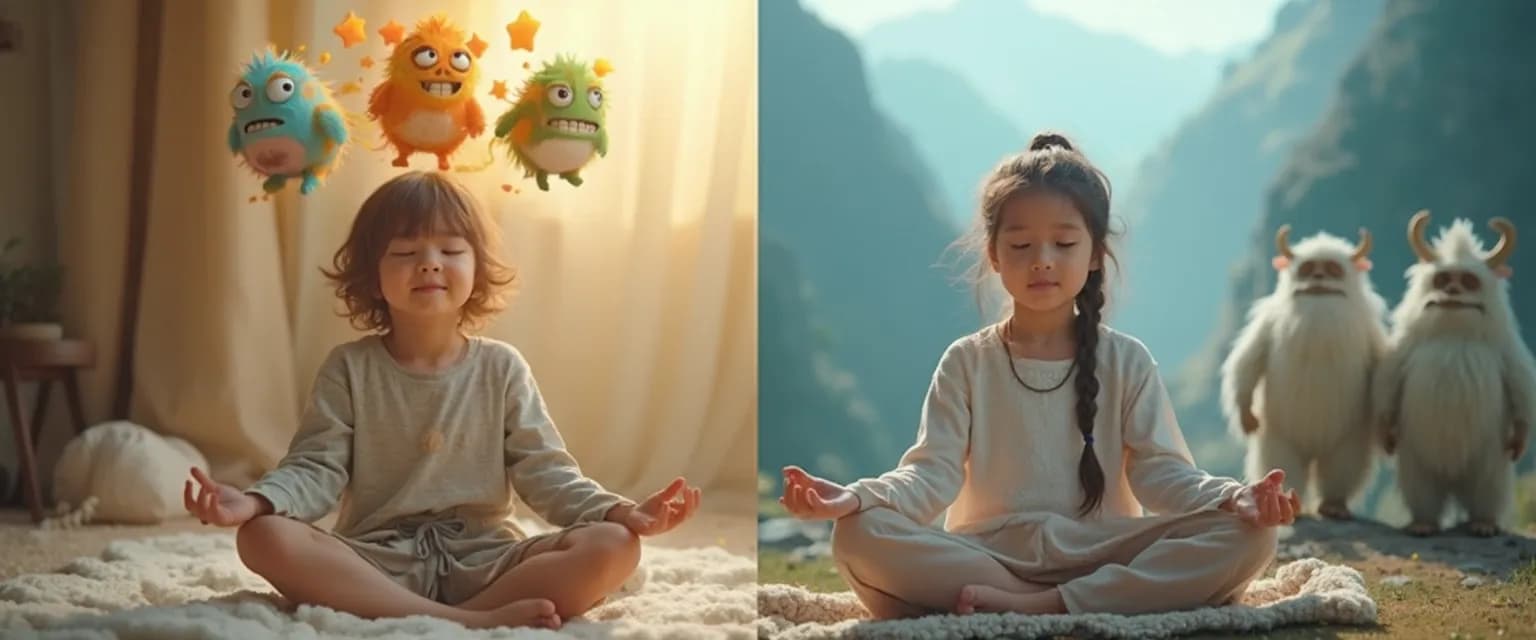Mind Yeti vs Mindful Monsters: Which Meditation App Best Suits Your Child?
Finding the right mindfulness tool for your child can feel like navigating a maze of colorful characters and promises. Mind Yeti and Mindful Monsters stand out as two popular meditation apps designed specifically for children, each offering unique approaches to building focus and emotional regulation skills. As parents increasingly recognize the importance of mental wellness tools for kids, these apps provide accessible ways to introduce mindfulness techniques that can benefit children both at home and in school.
Mind Yeti, developed by the Committee for Children, takes a character-based approach to meditation that resonates with younger audiences. Its playful yet structured format makes mindfulness accessible even for children who struggle with attention. But how does it compare to the equally popular Mindful Monsters? Let's explore both options to help you make the best choice for your child's unique needs and learning style.
The growing research on childhood anxiety and stress management points to early mindfulness practice as a powerful preventative tool. Both Mind Yeti and Mindful Monsters aim to make these practices kid-friendly, but their methods differ in important ways that might make one a better fit for your family.
Mind Yeti's Approach to Children's Mindfulness
Mind Yeti stands out with its science-backed approach to children's meditation, designed by educational experts at the Committee for Children. The app uses the friendly Yeti character as a guide through what they call "moments of quiet" - short, engaging meditations that help children clear their "hubbubs" (busy thoughts) and find mental clarity.
The Mind Yeti app features sessions ranging from 3-10 minutes, making them perfect for different attention spans and age groups. This flexibility is particularly valuable for children ages 5-12, though many teens also benefit from the straightforward approach. Each Mind Yeti meditation uses accessible language and concrete metaphors that help children visualize abstract concepts like attention and emotional regulation.
One of Mind Yeti's strengths is its classroom-friendly design. Many teachers incorporate Mind Yeti sessions as classroom transitions or before challenging activities that require focus. The app offers specialized content categories including:
- Focusing and attention building
- Calm-down techniques
- Kindness and gratitude practices
- Bedtime wind-down sessions
Mind Yeti's interface is notably minimalist, which helps reduce distractions and keeps children focused on the audio guidance. This design choice reflects the app's core philosophy: effective mindfulness doesn't need flashy visuals to engage children in meaningful practice.
How Mindful Monsters Compares to Mind Yeti
While Mind Yeti takes a streamlined approach, Mindful Monsters embraces vibrant visuals and gamification. Created by Moshi (formerly Calm for Kids), Mindful Monsters features four colorful monster characters, each representing different aspects of mindfulness: focus, calm, positivity, and creativity.
Unlike Mind Yeti's audio-focused sessions, Mindful Monsters incorporates more interactive elements and visual storytelling. This higher-stimulation approach works particularly well for children who respond to visual learning and gamified rewards. However, some parents report that these features can occasionally distract from the core mindfulness practice.
Content-wise, Mindful Monsters offers slightly longer sessions (5-15 minutes) than Mind Yeti, potentially making it better suited for older children or those with longer attention spans. The subscription model for Mindful Monsters is also structured differently than Mind Yeti, with premium content locked behind a paywall while Mind Yeti offers more free content upfront.
Where Mind Yeti excels in classroom implementation, Mindful Monsters shines in the home environment. Its activity cards and physical components (available through subscription boxes) create a more tactile experience that extends beyond screen time. This multimodal approach to emotional regulation can be particularly effective for children who learn best through hands-on activities.
Choosing Between Mind Yeti and Mindful Monsters for Your Child
When deciding between Mind Yeti and Mindful Monsters, consider your child's learning preferences and specific needs. Mind Yeti tends to work better for children who:
- Benefit from simple, clear instructions
- Get overstimulated by too many visuals
- Need short, focused practice sessions
- Are being introduced to mindfulness in a school setting
Mindful Monsters might be preferable for children who:
- Engage better with character-driven narratives
- Enjoy collecting and tracking achievements
- Have slightly longer attention spans
- Benefit from tactile, off-screen components
Both apps offer valuable entry points to mindfulness practice. Many families find that starting with Mind Yeti's straightforward approach builds a foundation that makes the transition to other mindfulness tools smoother. Whichever app you choose, consistency matters more than features - even 3-5 minutes of regular Mind Yeti practice can help children develop valuable self-regulation skills that benefit them both academically and emotionally.




